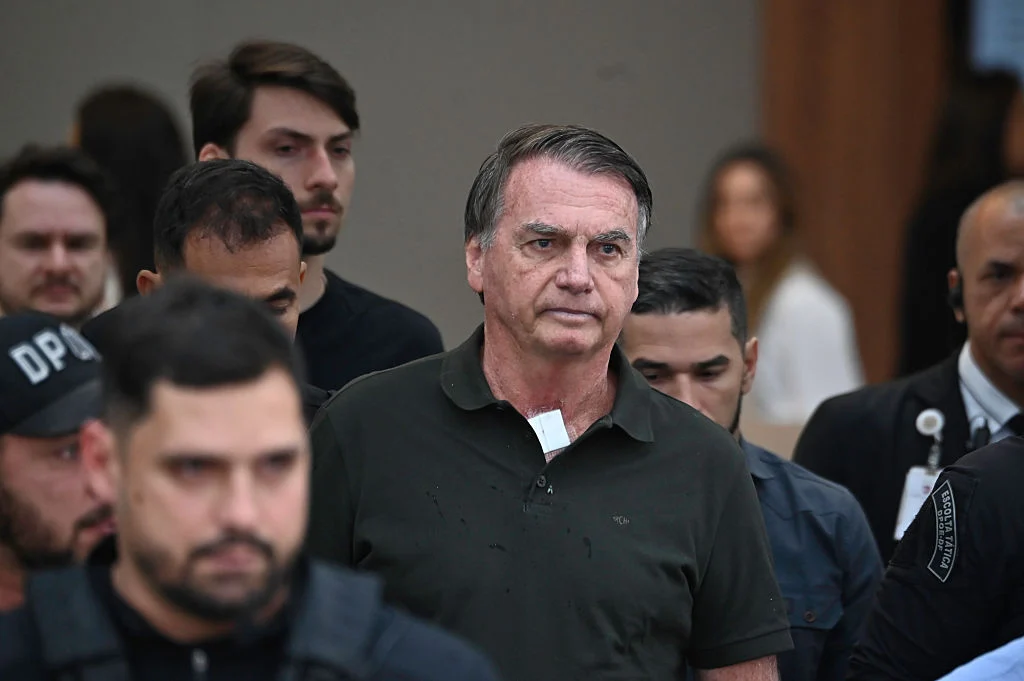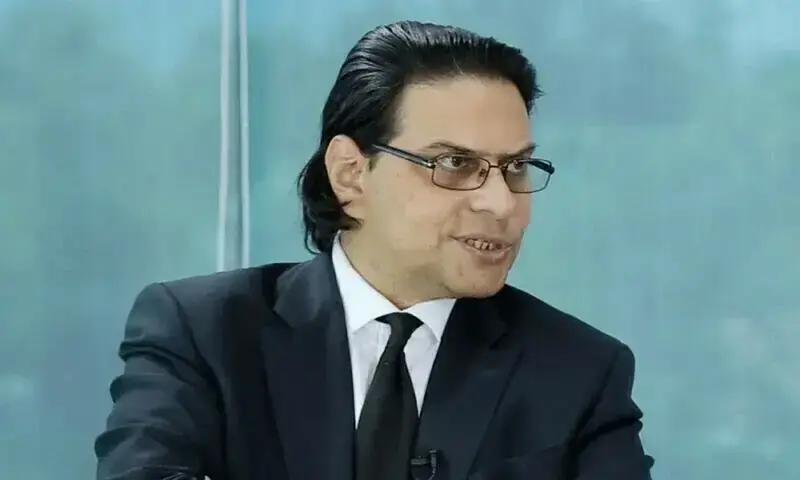By Michael Fox
Copyright truthout

Brazil’s Supreme Court’s decision to convict Jair Bolsonaro of plotting to carry out a military coup has been met with widespread celebrations across the country, along with dismay from the former president’s supporters.
The September 11 decision revolved around Bolsonaro’s plan to overturn his 2022 electoral defeat and assassinate current President Luiz Inacio Lula da Silva and two other top members of the Brazilian government. The panel of five Supreme Court justices voted 4-1 to convict Bolsonaro and sentenced him to 27 years and three months in prison.
Brazilians celebrated in the streets in cities across the country. News reports showed people amassed, dancing, and playing music as if it were the festival of Carnival.
“It’s a historic day,” one man at a celebration in Rio de Janeiro told AFP, “because in few countries in the world have you seen an ex-president and high-level military officials convicted for something like this. And for more than 20 years of prison.”
In its ruling, Brazil’s Supreme Court found Bolsonaro guilty of leading the coup plot to undermine Brazil’s democratic order leading up to the January 8, 2023, capitol invasion by Bolsonaro supporters, which was inspired by the January 6, 2020, attack on the U.S. Capitol in Washington, D.C.
The former president was convicted of five crimes: organizing a coup, participating in an armed criminal organization, attempting to abolish democracy, and damaging government property and cultural assets.
Bolsonaro is also banned from running for public office until 2060, when he would be 105.
Bolsonaro was not the only person sentenced to prison for the coup plot. Seven high ranking police and military officials were also convicted in the trial, receiving from 2 to 24 years for their roles in the attempted coup.
“Perhaps even more important than Bolsonaro’s conviction was the simultaneous conviction of three generals and an admiral equally implicated in the 2022 conspiracy,” Bruno P.W. Reis, the president of the Brazilian Political Science Association, told Truthout. “It is of enormous importance for my generation, born in the 1960s. We all hope it will be a watershed moment.”
That’s because like much of Latin America, Brazil’s past is riddled with multiple attempted and successful military coups, leading up to the 1964 coup that sank the country into a 21-year dictatorship.
But until now, no one has been held responsible.
“In light of the history of U.S. supported-coups in Latin America and Brazil, and the impunity that high-level coup plotters have traditionally had in Brazil, this is a significant victory for democratic self-governance in Brazil,” Rutgers University Associate Professor of Anthropology Sean T. Mitchell told Truthout.
“Remember, this is the first time that people, particularly military leaders, involved in attempting a coup have been brought to justice [in Brazil]. So, in a way this could be seen as moving beyond a trial about this one attempted coup, but also about the intrinsic value of democratic rule in general — something Brazil is still learning,” Rafael R. Ioris, Brazilian associate professor of Latin American history at the University of Denver, told Truthout. “I would also say that it might even be seen as finally closing the chapter of dictatorship and its tragically imposed amnesty to illegal political actions and violence.”
But for the international far right, the conviction is a travesty. U.S. president Donald Trump has called the trial against Bolsonaro a “witch hunt.”
Trump is a longtime ally of Bolsonaro, whom he praised when the two met more than once during Trump’s first term.
“I thought he was a good president of Brazil and it’s very surprising that that could happen,” Trump told press following Bolsonaro’s conviction. “It’s very much like they tried to do with me, but they didn’t get away with it.”
In July, Trump imposed a 50 percent tariff on Brazilian goods in retaliation for the country’s trial against Bolsonaro. He sanctioned Brazilian Supreme Court Justice Alexandre de Moraes who has led the trial against Bolsonaro, and revoked U.S. visas from the Brazilian Supreme Court justices the United States deemed likely to convict Bolsonaro.
The Trump government is likely to take further action in response to last week’s conviction.
“The United States will respond accordingly to this witch hunt,” U.S. Secretary of State Marco Rubio posted on X after Bolsonaro’s conviction.
“We can expect a new wave of tariff retaliations and, eventually, a new wave of retaliations against Brazilian authorities, suspensions of visas, banking accounts, and that sort of thing,” Clarissa Franzoi Dri, an International Relations professor at Santa Catarina Federal University, told Truthout.
Bolsonaro’s supporters have welcomed Trump’s ongoing support for Bolsonaro and his attempts to influence Brazil’s judiciary. On September 7 — Brazil’s Independence Day — tens of thousands of Bolsonaro supporters marched in Brazilian cities. Many in the crowds carried U.S. flags.
One large banner at a rally in São Paulo showed Brazilian and American flags overlaid on top of each other. The words, which were written in English, read “IN GOD, BOLSONARO N’ TRUMP WE TRUST.”
It is still unclear how Bolsonaro’s conviction may impact his base and the far right in Brazil.
“Today, this is an international, organized, and well-funded movement,” political scientist Reis told Truthout. “Even if Bolsonaro leaves the game irreversibly, we can expect that the country will continue to embrace — in its domestic politics, with similar rhetoric, the same platform of institutional predation that constitutes the agenda of the far right in the West.”
Bolsonaro still holds substantial support in Brazil. A Datafolha poll released on Saturday showed 50 percent of those surveyed supported his conviction, while 43 percent opposed it.
In numerous videos and news reports, his supporters openly cried after hearing the news that their former president was convicted. In one WhatsApp chat group monitored by Truthout, Bolsonaro supporters lamented both Bolsonaro’s conviction and the killing of Charlie Kirk the previous day.
“Unfortunately, we are at war with communism and it didn’t just start today,” wrote one person on the chat, writing in Portuguese. “Now, more than ever, we need to come down hard on these communist bums.”
Bolsonaro’s allies in Congress hope to pass legislation that would offer amnesty for those involved in the January 8, 2023, capitol invasion in Brasilia. This would, theoretically, include Bolsonaro. But it is moving slowly and it is unclear if they have the support to overrule a veto by President Lula. The legislation would probably also land in the hands of the Supreme Court.
President Lula has adamantly supported the trial and conviction of Bolsonaro.
“If President Trump were living in Brazil and had done what he did at the capitol, he would be on trial here too,” Lula said last week, “Because here the law applies to everyone.”
The trial and conviction are clearly a setback for the Brazilian far right.
“The conviction weakens the Brazilian right,” said Mitchell. “Brazil’s right is internally divided about strategy and leadership going forward, and the revelations of the coup plot have damaged the right’s legitimacy with much of the public.”
This is good news for progressives in Brazil, just a year out from next year’s presidential election. Lula’s approval rating has also risen in recent months in response to Trump’s tariffs on Brazil. According to a poll released last week, Lula would defeat any challenger, including Bolsonaro, if the 2026 election were held today.
“Historic” is perhaps the best adjective, repeated again and again in recent days, to describe the conviction. Many Brazilians hope it will be a defining moment in the country’s history and in the country’s ability to chart its own course in a region that the Trump administration is increasingly looking to influence.
“More than a symbolic and a historic condemnation in defense of Brazilian democracy, this Supreme Court decision represents an affirmation of our sovereignty,” Bia Barbosa, advocacy coordinator at Reporters Without Borders in Latin America, told Truthout. “Especially in a scenario in which President Trump and the U.S. government threatened and even adopted economic sanctions against Brazil to try to interfere in the course of this democratic judicial process.”



